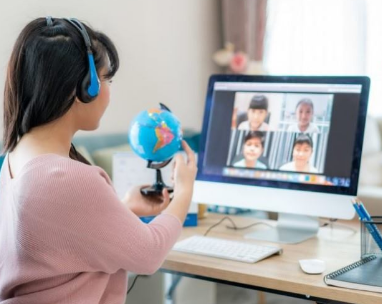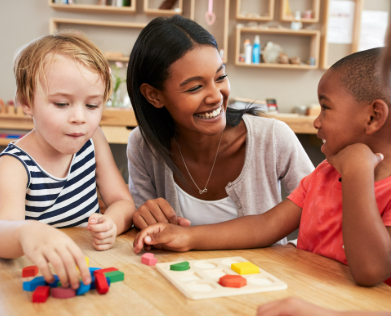In our fast-paced and often demanding world, it is easy to focus on relationships with others, work, or external achievements while overlooking the most fundamental relationship we have: the one with ourselves. A healthy self-relationship is not simply about self-esteem or confidence; it is a dynamic balance of self-awareness, self-care, and emotional regulation. Finding and maintaining this balance can transform how we approach life, navigate challenges, and interact with others. Understanding the importance of balance in self-relationships is the first step toward living a more harmonious and fulfilling life.
Balance in self-relationships begins with self-awareness. Being attuned to your thoughts, emotions, and behaviors is essential for understanding your needs and desires. Self-awareness allows you to recognize when you are feeling overwhelmed, anxious, or disconnected from yourself. It is not about judging or criticizing your feelings but about observing them with curiosity and compassion. When you are aware of your emotional state, you can respond to it in a way that supports your well-being rather than suppressing or ignoring it. This awareness forms the foundation for making conscious choices that align with your values and goals.
Self-care is another critical aspect of balance in self-relationships. It encompasses a range of activities and practices that nurture your physical, emotional, and mental health. Adequate rest, nutritious food, exercise, and moments of relaxation are essential components of self-care. Beyond physical needs, self-care also involves setting boundaries, engaging in activities that bring joy, and taking time for reflection. When self-care is consistent and intentional, it strengthens your resilience and provides the energy needed to face life’s demands. A balanced self-relationship recognizes that self-care is not selfish; it is necessary for sustaining overall well-being and fostering positive interactions with others.
Equally important is the ability to manage self-criticism and cultivate self-compassion. Many individuals struggle with harsh inner dialogues that erode confidence and create stress. A balanced self-relationship involves acknowledging mistakes and imperfections without allowing them to define your worth. Self-compassion encourages a gentler perspective, helping you navigate challenges with patience and understanding. When you treat yourself with kindness and empathy, it becomes easier to maintain emotional equilibrium and make decisions that reflect your best interests. Balance is achieved when self-compassion tempers self-criticism, allowing growth without undue harshness.
Emotional regulation is a further dimension of maintaining balance in self-relationships. Life inevitably presents situations that trigger frustration, sadness, or anger. How you respond to these emotions can significantly impact your relationship with yourself. Emotional regulation does not mean suppressing feelings but recognizing and expressing them in constructive ways. Practices such as mindful breathing, journaling, or reflective meditation can help process emotions effectively. By learning to manage emotions without being overwhelmed by them, you create space for clarity, decision-making, and self-acceptance. Emotional balance fosters stability, reducing the likelihood of reactive behaviors that may damage self-trust.
Balance in self-relationships also requires alignment between your inner values and your daily actions. Living authentically means making choices that reflect your true beliefs and priorities rather than being swayed solely by external pressures or societal expectations. When your actions are consistent with your values, you cultivate integrity and self-respect. This alignment encourages a sense of purpose and direction, reducing internal conflict and promoting a harmonious inner life. The process of discovering and clarifying your values is ongoing, and it allows your self-relationship to evolve with your personal growth.
Another vital aspect of balance involves managing expectations. Many people place unrealistic demands on themselves, striving for perfection or trying to meet every external standard. These pressures can create tension, self-doubt, and burnout. A balanced self-relationship recognizes limitations and embraces flexibility. It accepts that progress and growth are gradual and that mistakes are opportunities for learning rather than indicators of failure. By setting realistic goals and honoring your pace, you protect your emotional health and maintain a constructive, nurturing connection with yourself.
Social influences also play a role in self-relationship balance. While external relationships are essential, it is crucial to ensure that interactions with others do not overshadow your own needs. Maintaining balance means being able to give and receive support without losing sight of your well-being. Healthy boundaries are a key component of this balance, allowing you to engage meaningfully with others while preserving your personal space and energy. By prioritizing self-respect alongside compassion for others, you create relationships that are mutually enriching rather than depleting.
Reflective practices, such as journaling or meditation, can support ongoing balance in self-relationships. Taking time to reflect on your experiences, emotions, and decisions helps you identify patterns, appreciate progress, and recalibrate when necessary. Reflection encourages self-discovery and reinforces self-awareness, enabling you to make adjustments that strengthen your inner harmony. By dedicating even a few moments each day to intentional reflection, you create a continuous feedback loop that nurtures your self-relationship and promotes equilibrium in daily life.
Balance in self-relationships is not a static state but a dynamic process that requires attention and adjustment. Life’s circumstances, responsibilities, and challenges can shift, and your relationship with yourself must be flexible enough to adapt. Embracing this fluidity allows you to navigate periods of stress, change, or uncertainty with resilience and grace. It also fosters a sense of empowerment, as you recognize that you are capable of maintaining equilibrium even amid external turbulence.
Ultimately, a balanced self-relationship lays the groundwork for overall well-being. It enhances mental clarity, emotional stability, and physical health while fostering a positive outlook on life. People who cultivate this balance tend to experience greater satisfaction, reduced stress, and improved relationships with others. By prioritizing self-awareness, self-care, emotional regulation, alignment with values, realistic expectations, and healthy boundaries, you create a sustainable and nurturing inner environment.
In conclusion, the importance of balance in self-relationships cannot be overstated. It is the foundation upon which emotional health, resilience, and fulfillment are built. Achieving balance requires ongoing attention, self-reflection, and conscious effort, but the rewards are profound. A harmonious relationship with yourself empowers you to live authentically, face challenges with confidence, and engage with the world in a meaningful way. By honoring and nurturing your inner self, you cultivate a life of clarity, peace, and joy that radiates outward, enriching every aspect of your existence. Balance is not just a goal; it is a lifelong practice, and investing in it is one of the most compassionate acts you can perform for yourself.






